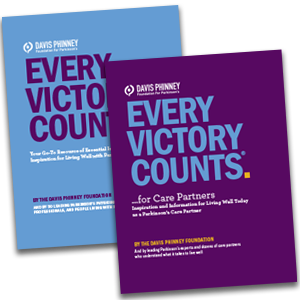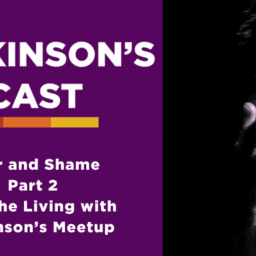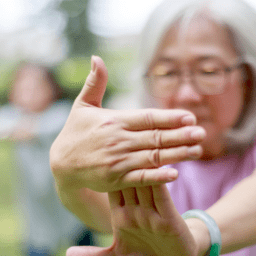On January 18, 2024, we held the first Living with Parkinson’s Meetup of 2024.
During this session, the panelists discussed clinical trial participation and personal experiments they’ve undertaken to help themselves live well with Parkinson’s.
If you haven’t registered to attend the live meetups, you can do so here.
MEETUP NOTES
Contributing to advancing understanding of Parkinson’s, having more frequent visits with care providers, and getting early access to new treatments: These are some of the reasons people–including some of the panelists–choose to participate in clinical trials.
Our website has many resources about clinical trials, and you can find links to some content highlights on this subject in the links at the bottom of this post.
CONSIDER YOUR GOALS
If you are considering participating in clinical trials, examine your goals and choose to participate in a trial only when it aligns with what you hope to get out of participating.
If your goal is to advance research and understanding of Parkinson’s, talk to your care team and call movement disorder centers to share your interest and ask them what trials your participation might be most useful in.
Alternatively, if you want to participate in trials to access new and possibly disease-modifying treatments, read up on what trials are coming up (every month, we have a list in our monthly news round-up) and ask your care team about impending trials.
Be careful about what treatments you take as you wait for the right trial for you: Many trials for new medications exclude participants who have taken even common medications like levodopa. Consider the possibility that you may receive a placebo and whether to consider plans to have an open-label extension: when all participants in a trial transition to active treatment at the end of the trial, regardless of whether they were on placebo during the initial part of the trial.
You may want to participate in research to have more frequent visits with care providers. If this describes your motivation, choose a trial located at a convenient site involving researchers you’d like to see. Carefully read the trial protocol to be sure you understand how often you’ll have to go to on-site visits.
EVALUATING TRIAL DESIGN
The possibility of an open-label extension is just one element of trial design that you should consider. Others include:
- The medications you can take while in the trial
- Whether you can start a new medication while in the trial
- The likelihood you may be allocated to a placebo group and whether this is tolerable for you
- What tests and exams you’ll have to undergo
SETTING YOUR LIMITS WITH CLINICAL TRIALS
Everyone has their limits with trial participation.
For example, you may not want to take any medication that’s not already approved and has undergone thorough testing. If this describes you, consider an observational trial like PD GENEration or the Parkinson’s Progression Markers Initiative (PPMI). Other options might include sleep-related studies, exercise trials, or trials that focus on dietary interventions.
Conversely, you might be willing to participate in a trial for a new medication but have limits as to the tests you are willing to undergo during a trial. For example, some trials ask participants to have a lumbar puncture to examine their cerebrospinal fluid, which may be off-putting. A more common test is a DaTscan; however, while this test is widely considered safe, it does require exposure to some radioactive material. Some people are unwilling to undergo the test for that reason. Knowing what a trial requires and feeling comfortable with those requirements is crucial.
TRIAL PHASES
Another limit you might have relates to trial phases.
Phase I trials for medications tend to be riskier and shorter because they generally occur before significant safety data about a new medication exists. Phase II trials typically investigate the tolerability of a medication for a somewhat larger group. Phase II trials are also where researchers typically start to investigate the efficacy of the medication. By the time a phase III trial starts, researchers generally know the side effect profile of a new intervention. In phase III trials, researchers are typically investigating whether a treatment helps a large, diverse group of people.
Kevin provides an excellent overview of trial phases at around the 50-minute mark in this month’s meetup recording.
PERSONAL EXPERIMENTATION
The panelists also discussed personal experimentation they’ve undertaken while living with Parkinson’s. The audience chat was particularly interesting regarding what exercises they’ve found most helpful and enjoyable. The list of exercises that the audience and panelists tried included:
- “Whatever I will do most consistently”
- Cycling; in particular, Pedaling for Parkinson’s™
- Boxing
- Rock climbing
- Walking and walking the dog
- Tai Chi
- High intensity interval training (HIIT)
- Pickleball
- Weightlifting
- Step and core class
- Yoga
- Running
- Cardio kickboxing
- Pilates
- Water fitness classes and water Zumba®
- Gardening
Finally, two observations from the meetup chat: Variation in exercise can help keep it interesting, and hydration is key to many aspects of living well with Parkinson’s from constipation and orthostatic hypotension to helping with exercise performance. Drink plenty of water!
NEXT MEETUP
Our next meetup will be February 15, 2024. We always welcome your questions! Please send them our way using this form or by emailing blog@dpf.org.
Additional Resources
Kevin Kwok on the Clinical Trial Timeline
Find a Trial via Clinicaltrials.gov
 WANT MORE PRACTICAL ARTICLES LIKE THIS?
WANT MORE PRACTICAL ARTICLES LIKE THIS?
You can learn much more about living well with Parkinson’s today through our Every Victory Counts® suite of resources. Each manual is packed with up-to-date information about everything Parkinson’s. Click the link below to reserve your manual(s).
Thank you to our 2024 Gold Partner, AbbVie, and our Silver Partner, Mitsubishi Tanabe Pharma America, for their ongoing support of these must-have manuals. Additionally, we’d like to thank Barbara and Dale Ankenman, Abby and Ken Dawkins, Bonnie Gibbons, Irwin Narter, Lorraine and J Wilson, and Gail Gitin in loving memory of Gene Gitin for their generous donations that allow us to make these resources available and accessible to all.

















